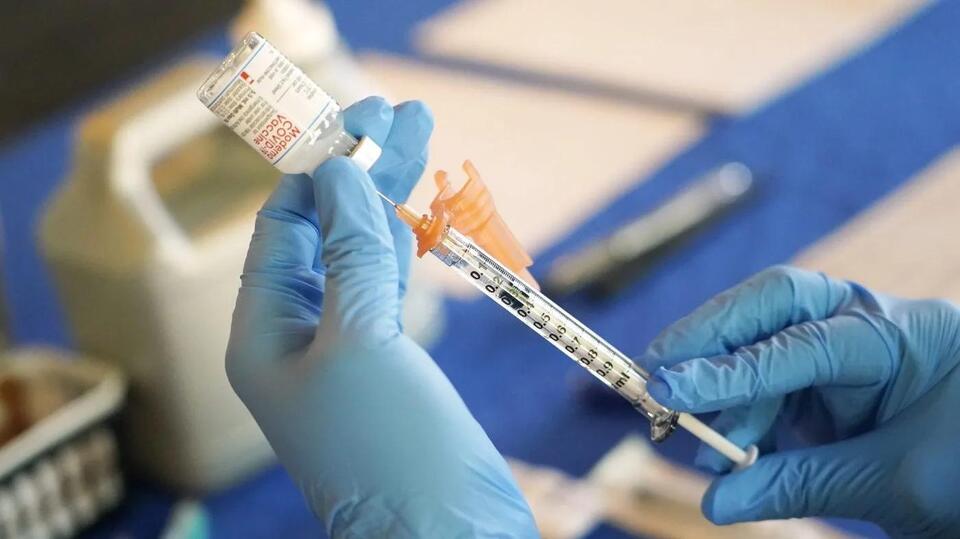
Federal health advisors in the US have recommended that the next round of COVID-19 vaccines should be updated to target the now-dominant XBB strains. The unanimous recommendation from the Food and Drug Administration’s vaccine advisory committee follows that of agency staff, who in a memo acknowledged that while older vaccine formulas can still help stave off severe disease, “protection wanes with time and is reduced against subsequent waves of variant viruses.” Data suggests using the latest dominant coronavirus strain that more closely matches current circulating Omicron sublineages “is warranted for the 2023-2024 vaccination campaign,” FDA staff added.
The FDA panel agreed that the updated vaccine should be a “monovalent” shot focused on XBB rather than the “bivalent” booster unveiled in September 2022, which protected against both the then-dominant Omicron subvariants and the ancestral coronavirus strain. Future iterations of the vaccines need not protect against the ancestral strain, scientists say. A World Health Organization technical advisory group said in May there is no longer a need for that since the original version of the coronavirus that emerged in late 2019 in Wuhan, China, is essentially extinct.

Virtually all versions of the coronavirus currently circulating in the US are descendants of the original Omicron variant that hit the nation in late 2021 and early 2022. But among those, the XBB family is dominant almost to the point of monopoly. Recent estimates from the Centers for Disease Control and Prevention show that XBB sublineages comprise nearly 99% of circulating coronavirus in the US, displacing the BA.5 subvariant that dominated the nation for much of last year.
Evidence is accumulating that “suggest that a vaccine composition that more closely matches circulating virus strains can significantly improve vaccine-induced immunogenicity and protection,” FDA staff said. The updated vaccine, according to the FDA panel, should only include protection against the XBB subvariant that is now dominant worldwide, rather than both XBB and the ancestral strain of the virus that first appeared in 2020. The FDA said studies have shown the current updated boosters do provide protection against XBB.1.5, but the antibodies generated appear to be lower than what’s seen against the Omicron BA.4 and BA.5.
The recommendation from the FDA panel will be reviewed by the FDA. The US Centers for Disease Control and Prevention is also expected to weigh in on the matter, with its Advisory Committee on Immunization Practices scheduled to discuss COVID-19 vaccines on June 23.
The challenge for scientists is that they need to predict which strain will be dominant over the winter, since the virus will likely mutate again. It’s a similar strategy to the annual flu shot, and it doesn’t always work. Flu shots are updated each year and recommended annually for everyone over six months old because the strains mutate every season. So if a vaccine targets the wrong strain, it could be a miss. But unlike the flu, panel members noted that people will still get some kind of immunity even if there’s a different variant circulating than what the vaccine targets.
Representatives from Pfizer-BioNTech, Moderna, and Novavax have told the panel that they will have supplies ready for an XBB vaccination campaign that will align with the seasonal flu vaccination campaign. Older adults and others at high risk because they are immunocompromised continue to have the highest rates of hospitalization from COVID-19, though it’s unclear if the new vaccines will be recommended for everyone this fall.
In conclusion, the FDA panel recommends that the next round of COVID-19 vaccines should be updated to target the XBB subvariant that is now dominant worldwide. The updated vaccine should be a “monovalent” shot focused on XBB rather than the “bivalent” booster. The recommendation from the FDA panel will be reviewed by the FDA, and the US Centers for Disease Control and Prevention is also expected to weigh in on the matter. With the virus likely to mutate again, the challenge for scientists is to predict which strain will be dominant over the winter.
References
- https://thehill.com/homenews/3766959-fda-authorizes-bivalent-covid-19-boosters-for-children-as-young-as-6-months/
- https://thehill.com
- https://www.latimes.com/science/story/2023-01-05/xbb-1-5-variant-is-taking-over-the-east-coast-will-it-happen-in-california
- https://www.latimes.com/science/story/2023-05-05/the-cdc-is-changing-the-way-it-monitors-covid-19-in-the-u-s
- https://www.latimes.com/california/story/2021-12-22/california-omicron-surge-has-arrived-with-covid-cases-spiking
- https://www.latimes.com/california/story/2023-02-13/california-tops-12-million-covid-cases-xbb15-now-dominant
- https://www.latimes.com/california/story/2023-04-28/as-arcturus-grows-coronavirus-in-l-a-county-sewage-rises
- https://covid.cdc.gov/covid-data-tracker/#variant-proportions
- https://www.latimes.com/california/story/2022-07-12/omicron-ba5-coronavirus
- https://www.latimes.com/california/story/2022-09-14/where-to-find-covid-omicron-boosters-in-california
- https://www.who.int/news/item/18-05-2023-statement-on-the-antigen-composition-of-covid-19-vaccines
- https://www.latimes.com/science/story/2021-11-18/a-timeline-of-covid-19s-first-weeks-in-wuhan
- https://www.latimes.com/california/story/2023-01-23/has-california-avoided-another-devastating-winter-covid-wave
- https://www.latimes.com/california/story/2022-12-03/updated-covid-19-boosters-give-significant-additional-protection
- https://www.latimes.com/california/story/2023-06-15/covid-vaccine-should-target-xbb-strain-fda-committee-says


